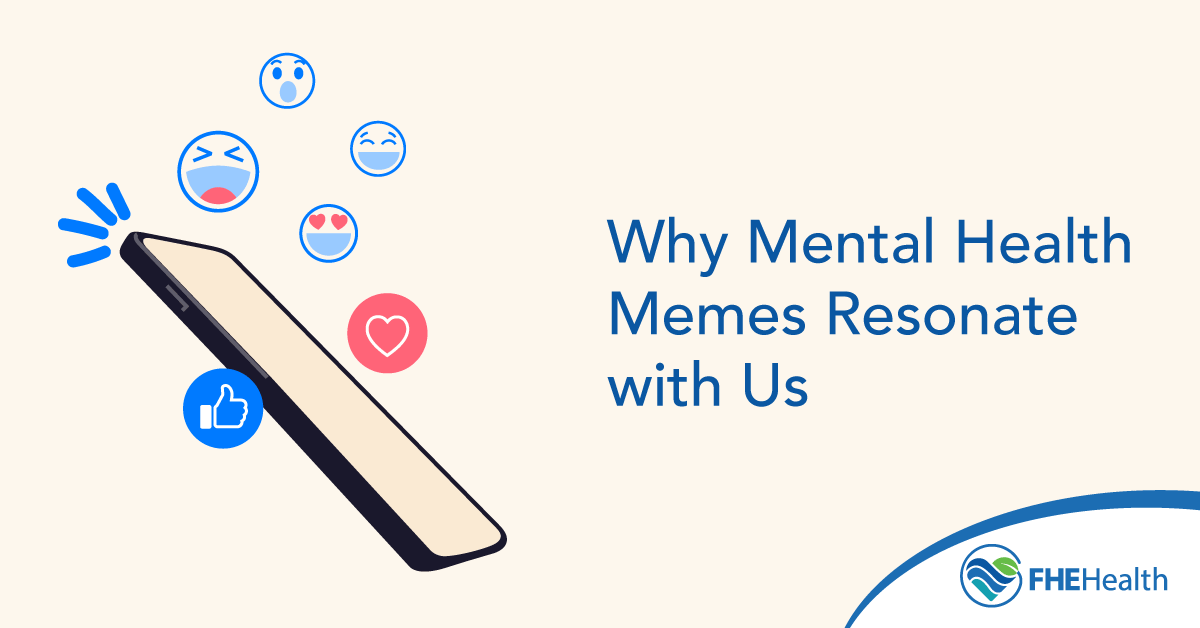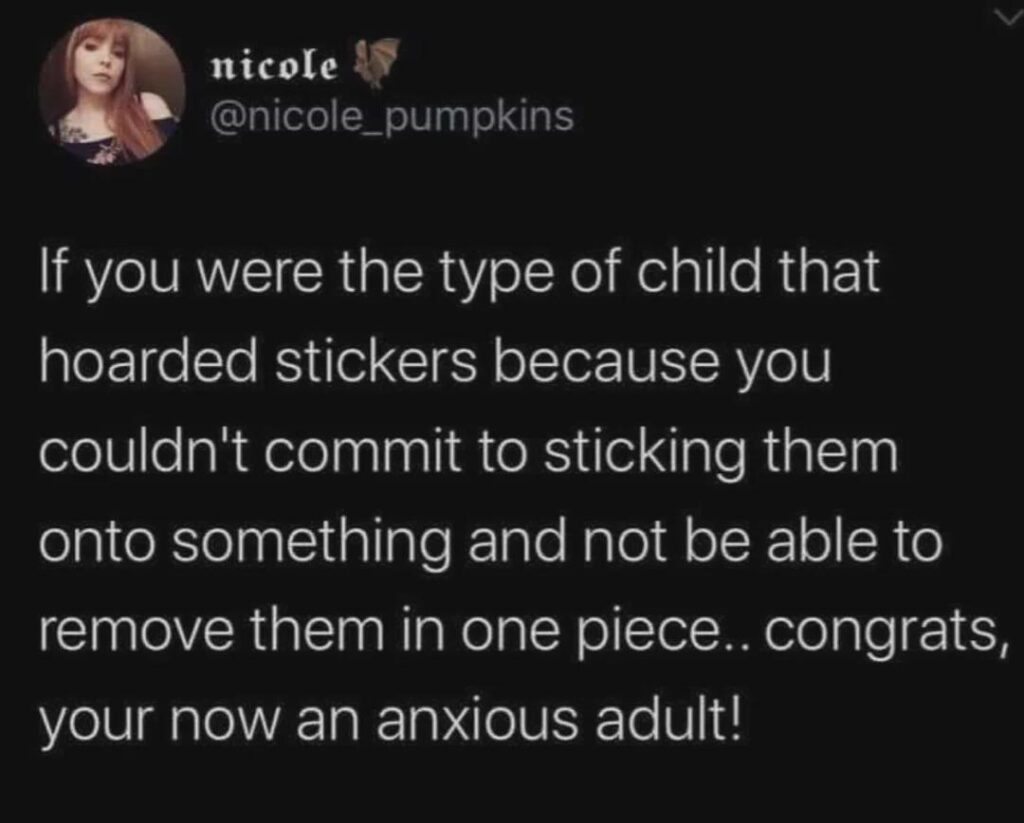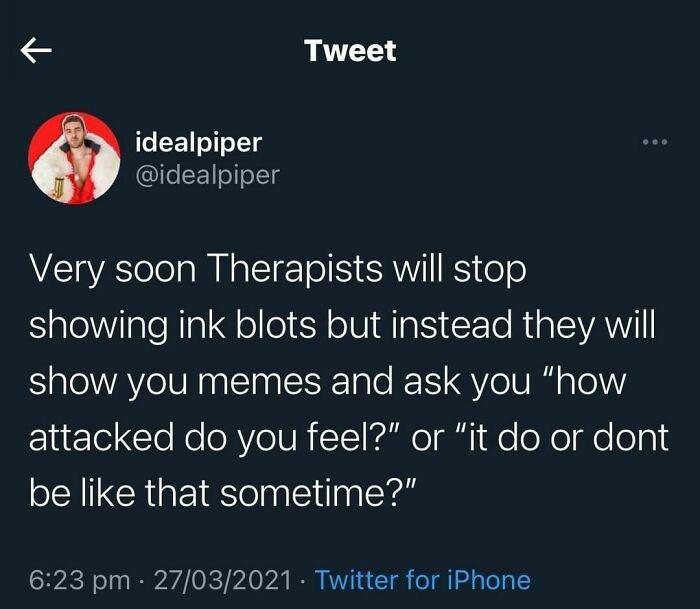
Mental health memes have become a popular way to share complex feelings and ideas using a clever combination of words and images. These memes can touch on inner struggles while also providing humor.
These memes can make emotional burdens feel lighter and help people connect with others online. They’ve grown beyond simple silly cat pictures with funny captions into a means of expressing and relating to mental health challenges.
In this article, we’ll look at how mental health memes can make our emotional burdens feel lighter and help us connect with others.
The Popularity of Mental Health Memes
Until recently, discussing mental health was often considered taboo. However, it’s now hard to scroll through social media without coming across mental health memes. These memes range from relatable scenarios like procrastination and social anxiety to humorous takes on therapy interactions, carving out a niche in our online interactions.
According to Mental Health America, about 60 million Americans are currently suffering from mental health disorders. This large number makes mental health memes popular because many people use them as a tool for connection and self-expression.
There are two main types of mental health memes:
- Informational mental health memes. These memes present facts about mental health disorders, coping strategies, or specific symptoms. They simplify complex topics, making them accessible to a broad audience.
- Funny mental health memes. These memes often use dark humor to address serious topics, making discussions about mental health more approachable. They facilitate easier conversations about personal experiences by providing a humorous perspective.
Humor as a Coping Mechanism
 Humor is a common coping mechanism many people use to deal with stress and anxiety. Studies show that a good joke or laugh can help individuals feel calmer and more relaxed during stressful situations.
Humor is a common coping mechanism many people use to deal with stress and anxiety. Studies show that a good joke or laugh can help individuals feel calmer and more relaxed during stressful situations.
Humor is an effective coping strategy for several reasons:
- Laughter triggers the release of endorphins, which are chemicals in the brain that promote feelings of happiness and well-being. This, in turn, lowers stress hormones, allowing relaxation.
- Sharing a joke with others creates a sense of closeness and helps break down social barriers, bringing people together.
- Finding humor in a challenging situation can provide a new perspective, making it feel more manageable and less intimidating.
Dark Humor as a Coping Mechanism
Dark humor involves finding amusement in serious or difficult topics. While it may not appeal to everyone, individuals in high-stress environments or complex family situations often find it a valuable coping mechanism.
However, not all jokes or memes about mental health are universally beneficial. Humor can sometimes be a double-edged sword, masking underlying emotions such as pain, sadness, anger, or fear. Suppressing these emotions can lead to more severe mental health issues over time.
If you or someone you know is using humor to avoid addressing deep-seated emotions, it may be advisable to seek support from a mental health professional. They can provide guidance on healthier coping mechanisms and therapeutic techniques.
Shared Experiences and Community
 Mental health memes can create surprising connections. When you interact with these memes on social media, you’re joining a community of people who relate to similar experiences. This online interaction often serves as an informal support network.
Mental health memes can create surprising connections. When you interact with these memes on social media, you’re joining a community of people who relate to similar experiences. This online interaction often serves as an informal support network.
Sharing or commenting on a meme about anxiety, for instance, might spark conversations with others who truly understand what you’re going through. These exchanges can help you feel less alone in your struggles and provide a sense of belonging.
It’s important to remember, though, that while these communities offer valuable support, they don’t replace professional help. Instead, they can be a helpful addition to your mental health toolkit, alongside therapy and other resources.
Raising Awareness and Reducing Stigma
Social media has a huge influence on how information spreads. This is partly because people spend so much time on these platforms and partly because social media can make complex topics more accessible and understandable.
In recent times, mental health memes have become a surprisingly powerful way to get people talking about tough mental health topics. They use humor and relatable content to make it easier to discuss issues like depression and anxiety without feeling judged.
Every time someone posts, likes, comments on, or shares mental health memes, they’re helping spread awareness and making these conversations more normal. By using mental health memes to normalize these conversations online, we’re making it easier for people to open up about their mental health in person and offer each other support in a more casual setting. With time, these memes can actually change how we think about mental health and the people dealing with these challenges.
The Psychological Impact of Memes
While mental illness memes can raise awareness and help people make connections, their psychological impact isn’t always positive. Excessive consumption might lead to oversimplification of complex issues or promote unhealthy coping mechanisms.
For example, a meme about anxiety might humorously depict avoiding social situations, which could reinforce avoidant behaviors rather than encouraging healthy coping strategies. Similarly, depression memes often romanticize isolation or self-deprecation, potentially normalizing these harmful patterns.
There’s also concern that overreliance on memes for communication could potentially hinder creative expression and original thought. Constantly referencing and sharing premade content might lead to lazy thinking patterns and make it harder to articulate unique ideas or have meaningful discussions.
To strike a balance, it’s important to balance mental burnout meme consumption with more in-depth engagement on mental health topics.
Healing Starts With Reaching Out
At the end of the day, mental health memes can be a good laugh, but they’re no substitute for real help when you need it. A good therapist will listen to your concerns, help you develop coping strategies, and provide the support you need to work through life’s challenges.
At FHE Health, we understand that seeking professional help for mental health issues can sometimes feel overwhelming. That’s why we offer a range of evidence-based therapies to address various mental health and addiction issues. Contact us today to learn more about how we can help you move beyond mental burnout memes and toward real, sustainable healing.







